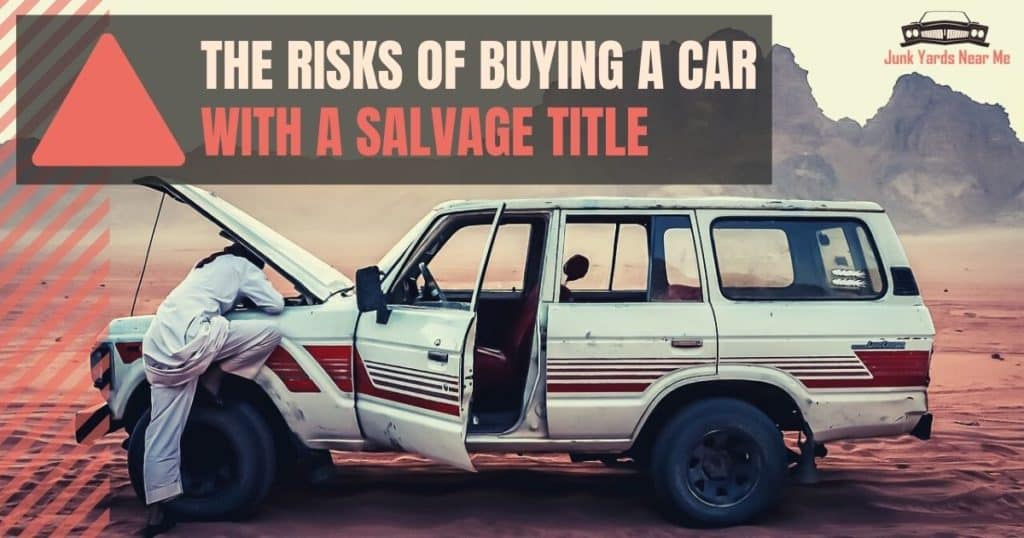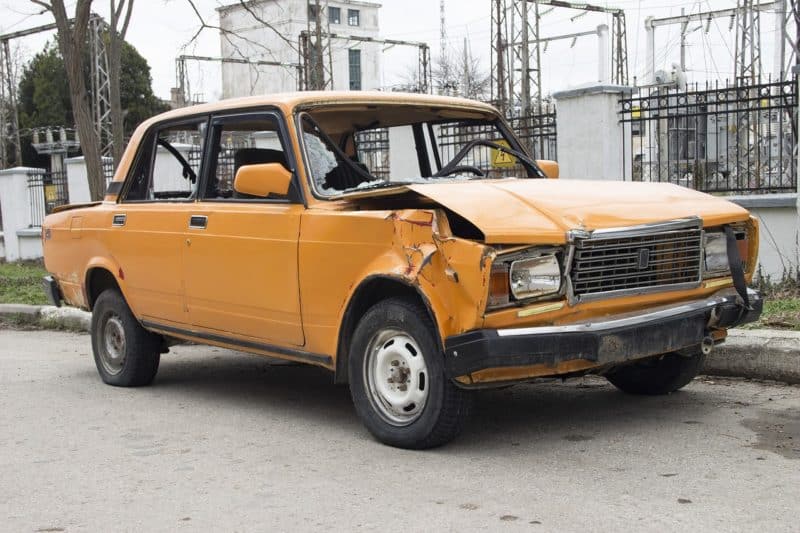
Buying a car can be costly. The cost of the vehicle itself can be breathtaking, but then once you’ve added tax, insurance, fuel, and regular maintenance, even a smaller family car might be out of your budget. One cheap option which can be popular is buying a vehicle with a salvage title. However, while salvage title cars are often vastly cheaper, and can sometimes be a great deal, there are risks involved, and you may want to think twice before rushing in. Today we look at the risks of buying a car with a salvage title…
What is a Salvage Title?
A salvage title is a car that has been damaged in an accident to the point that the repairs would cost more than the car is worth. The insurance company has deemed it “totaled” and taken possession of the vehicle and payed out a “total loss”. They then sell the damaged car for scrap, to yards or dealers. However, owners and insurance companies can overestimate the repair costs. Sometime these cars are easy to repair and may be sold on by the scrap yard.
What is the Difference Between a Salvage Title and a Rebuilt Title?
Put simply, the difference between a salvage title and a rebuilt title is the stage that the car is in.
A salvage title is placed on a vehicle that has been written off but can be repaired and made roadworthy again.
A rebuilt title is placed on a car that has been written off but has since been restored and is now roadworthy.
When you see a car marked with a salvage title, it needs repairs, which you will have to pay for, to make it ready to drive safely. If the car is marked with a rebuilt title, it’s a car that has previously been written off, but that is now repaired and ready to drive away. If these repairs have been well done, a rebuilt might work out cheaper, but that isn’t always the case. Worth noting if you buy a car with a rebuilt title or salvage title, the state requires a dealer to tell you upfront.
Are Salvage Title Cars Worth It? Maybe, Maybe Not…
This video below does a great job of breaking down the pros and cons of salvage titles. Its a good short watch and worth the 10 minutes if you are trying to access if you are trying to figure out if a salvage title vehicle is right for you.
What are the Risks of Buying a Car with a Salvage Title?
When you buy a car with a rebuilt title, you don’t know who has completed the repairs, where the parts were sourced, or much about the condition of the vehicle when it was written off. Buying a salvage has the advantage that you not only get a cheaper car, but you also get to source parts and use a mechanic that you trust. Long term, this can be a better idea. But that doesn’t mean that there aren’t risks to buying a vehicle with a salvage title. Here’s a look at some of them.
Reduced Value
Buying a salvage car is like buying any other. You have to register it in your name and are then finding insurance. With a salvage title though you need to make sure it’s roadworthy. Then you also have pay for repairs and maintenance. You shouldn’t have any problem registering your new car, but it will always be marked as having been salvaged, and no matter how much you spend on it, it will have a reduced value if you ever resell it.
The Expense of Repairs
Your salvage title car is going to need money spent on it. Even if you complete a lot of the work yourself, you will need to pay for spare parts, and it’s always a good idea to have a professional to check things out before you hit the road. The cost of repairs will depend on the specific car, it’s age, and the availability of parts. A professional mechanic will need to sign off on the vehicle before you can apply for a rebuilt title.
Problems Finding Insurance
insurance companies won’t even consider insuring a salvage car. It needs to be rebuilt first and then insured. Even insuring a car with a rebuilt title may get charged significantly higher premiums than they would for an ordinary used car with a clean title. This is because another insurance company has at some point written off this car and so they see it as a high-risk vehicle.
Finding the Right Car
Like any other kind of car, salvage vehicles come in a massive range of shapes, sizes, and prices. The cheaper options might seem like a great deal, but they might need far more money spent on them. By the time you’ve paid for the car, repairs, parts, a mechanic, more costly insurance premiums, and a new coat of paint, you might not be getting a great deal at all.
Potential Breakdowns
Whenever you buy an old or previously damaged car, there’s a risk of further breakdowns down the line. Not only will this be costly, but it could also put you and your family at risk.

Should You Buy a Salvage Title Car?
Buying a salvage car can be good in the right situation. As long as you’ve weighed up the risks and estimated how much use you need to get out of it. If you aren’t a mechanic yourself or don;t have someone affordable, then a salvage car may be more expensive to get approved with a rebuilt title.
Where to Buy Salvage Title Vehicles?
If you are in the market for a salvage title vehicle the two best places are salvage yards and salvage auctions. Salvage yards will have vehicles they sell and some will be able to be repaired. Salvage auctions are often vehicles from insurance companies that were declared “totaled” from an accident.
Risks of Buying a Car with a Salvage Title – Conclusion…
A salvage vehicle is good to purchase if you know your way around cars and know the risks. I have seen many people get great cars cheap, fix them, and resell them for more then 3X they paid. You can’t just buy any old salvage vehicle though. You need one that can easily be repaired and pass with a rebuilt title. Salvage cars are not able to be insured. Once it is labeled salvage it sticks with the car forever no matter how safe you have rebuilt it.
